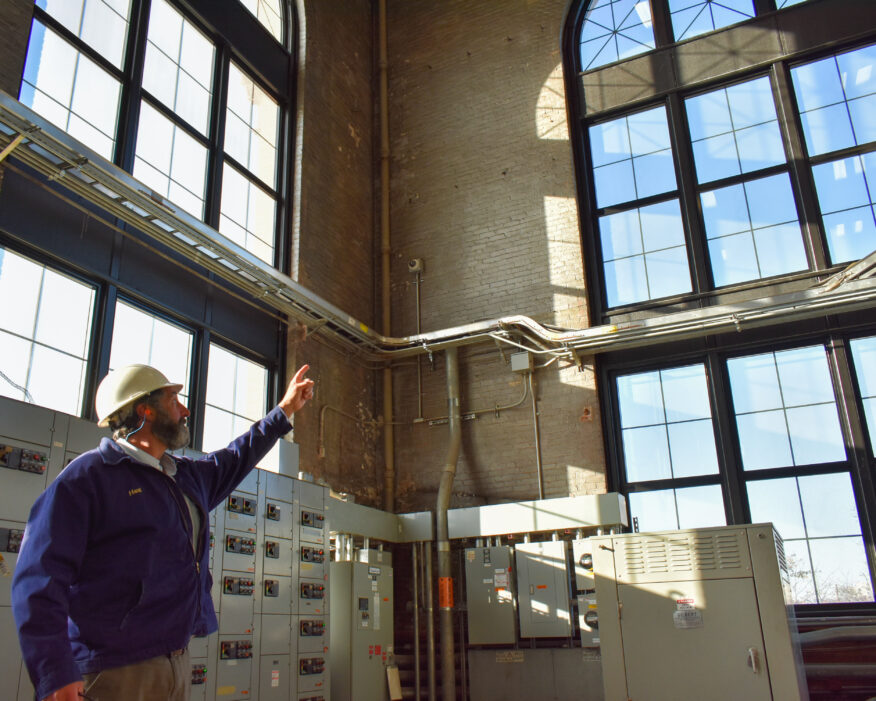Faculty of Arts and Sciences
The Faculty of Arts and Sciences (FAS) Sustainability Program is a partnership between the Office for Sustainability and the Faculty of Arts and Sciences, with the goal of implementing projects aimed at decarbonization, energy efficiency, and creating a more sustainable built environment. For students looking for more resources, please visit the Office for Sustainability’s resources page.
The Office of Physical Resources and Planning (OPRP) oversees FAS sustainability operations. This encompasses Harvard College, the Graduate School of Arts and Sciences (GSAS), the Division of Continuing Education (DCE), and Athletics, as well as the School of Engineering and Applied Sciences (SEAS).
FAS SUSTAINABILITY HIGHLIGHTS:
Harvard College
Harvard College’s sustainability initiatives are wide-ranging and cover various levels: from dorms and Houses to the entire University, extending to Cambridge, and even encompassing state, federal, and global scales. The university also offers student research opportunities: through offices like the Harvard University Center for the Environment (HUCE), students can collaborate with professors on groundbreaking studies related to science, policy, and economics. The College also partners with the Office for Sustainability to run the Resource Efficiency Program (REP), which promotes sustainability through undergraduate residential life.

Graduate School of Arts and Sciences (GSAS)
The Harvard Kenneth C. Griffin Graduate School of Arts and Sciences connects the groundbreaking work of students, faculty, and alumni with Harvard’s long tradition of excellence. With research departments spanning over 100 buildings, there are numerous ongoing climate and sustainability projects and initiatives. These include energy recovery and rooftop solar installation, laboratory fume hood competitions, lab freezer challenges, and more.

Division of Continuing Education (DCE)
Explore open-enrollment classes offered by the Harvard Extension School in nearly 60 fields, including environmental studies and sustainability. These learning opportunities, include the Sustainability Degree Program and certificates.

Athletics
Harvard Athletics operates world-class sporting facilities that also promote health, equity, and the sustainability of Harvard’s campus. Harvard Athletics has made significant strides in sustainability. For example, the completion of Harvard’s largest solar energy project, installing 2,275 solar panels on the Gordon Indoor Track and Tennis building. This initiative aligns with the university’s commitment to reduce and zero out greenhouse gas emissions.The panels are expected to generate 591.5 kilowatts of electricity, saving nearly 480 metric tons of carbon dioxide equivalent annually.

School of Engineering and Applied Sciences (SEAS)
Harvard’s School of Engineering and Applied Sciences (SEAS) stands out academically and takes a leading role in sustainability efforts. SEAS is addressing global challenges by integrating sustainability and sustainable practices into the School’s research, curriculum, and campus operations. The school invests in renewable energy research through faculty-student collaborations, developing technologies like solar power, wind energy, and energy storage systems. Additionally, SEAS fosters an environmentally conscious and responsible engineering mindset by instilling sustainability principles in engineering design courses and the School’s operations. Through energy-efficient buildings, waste reduction, recycling programs, and sustainable transportation initiatives, SEAS consistently practices and promotes sustainable campus management.

Faculty of Arts and Sciences